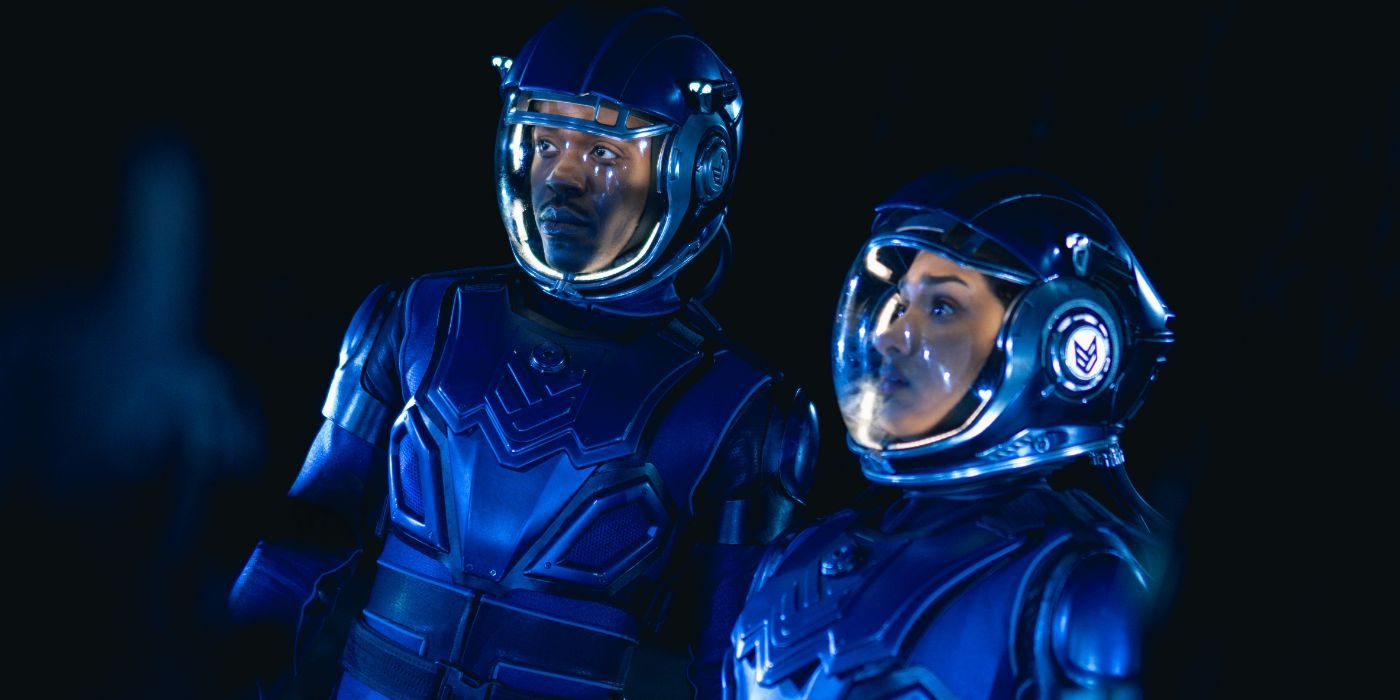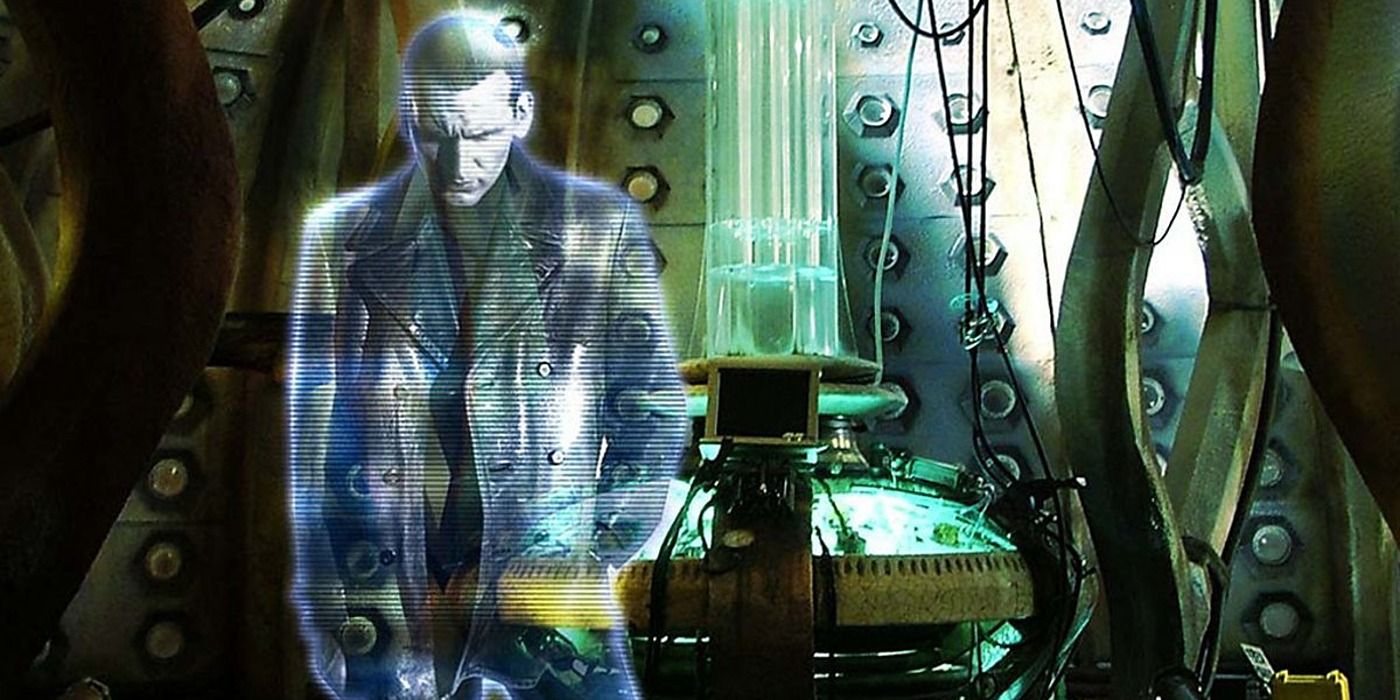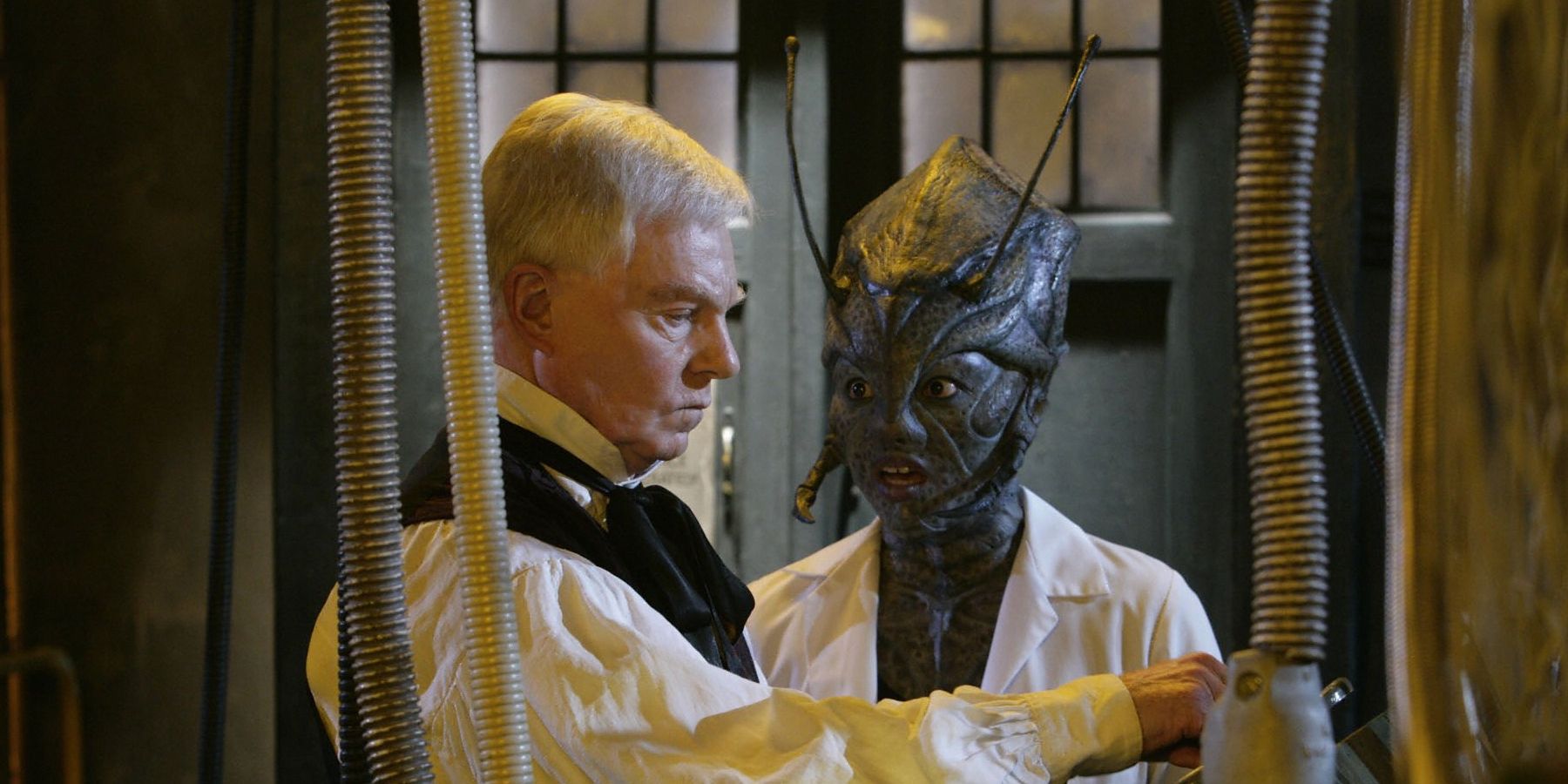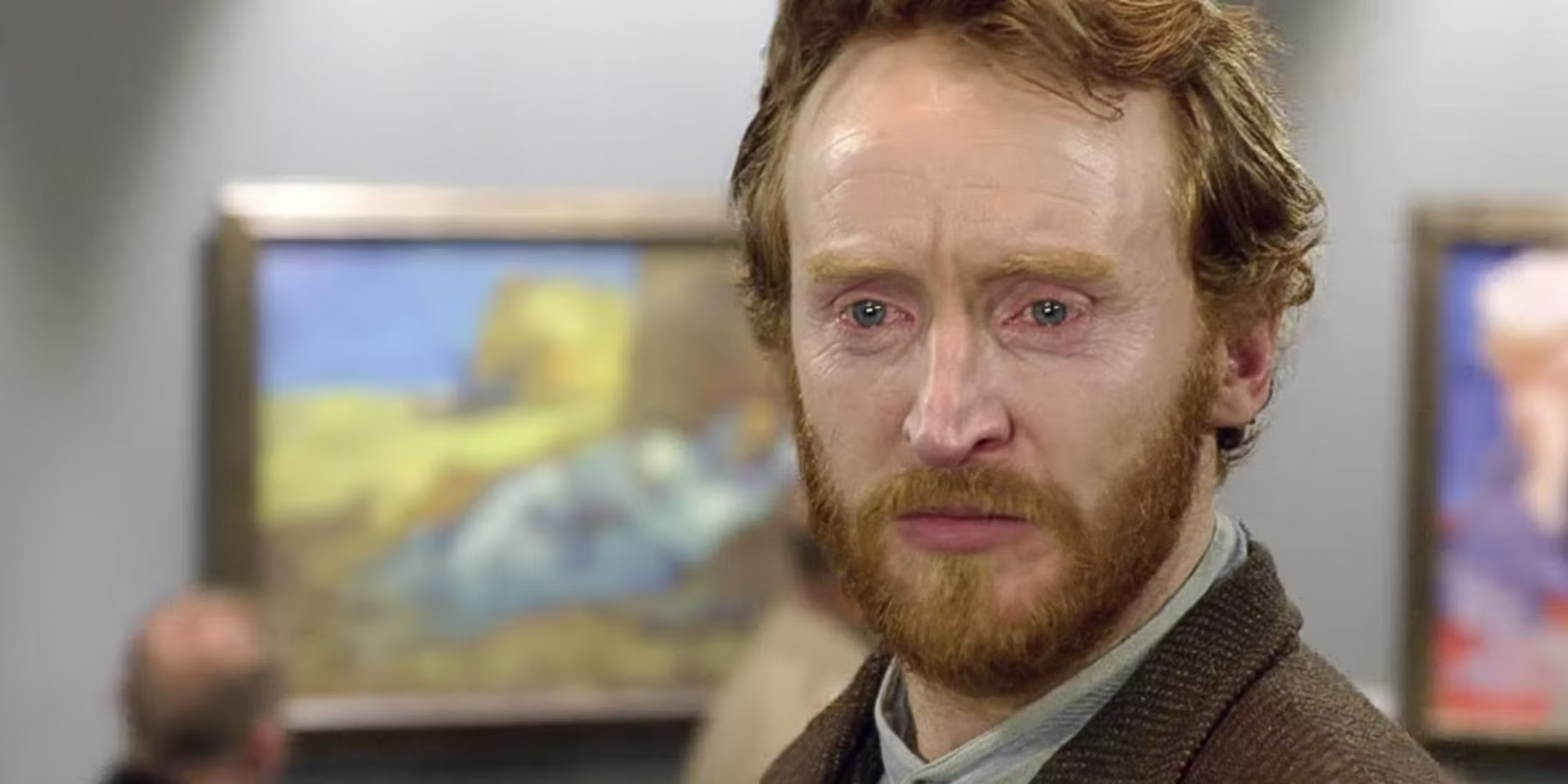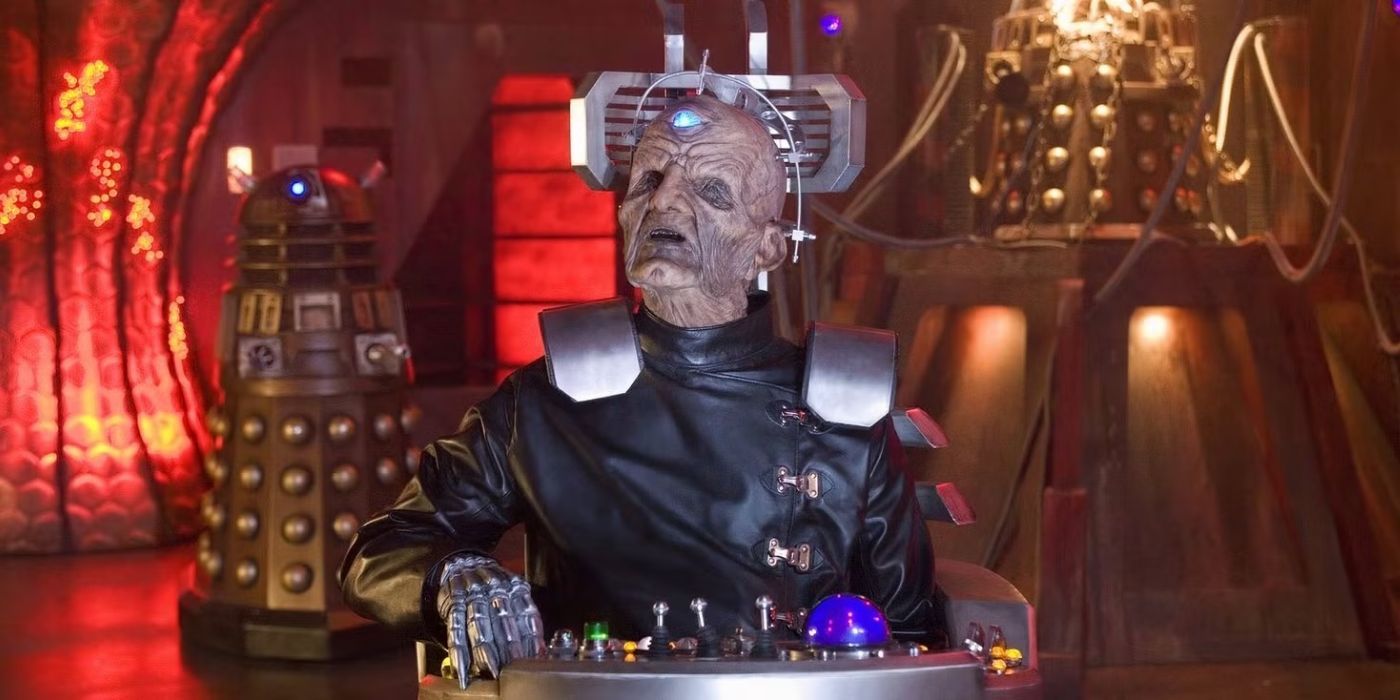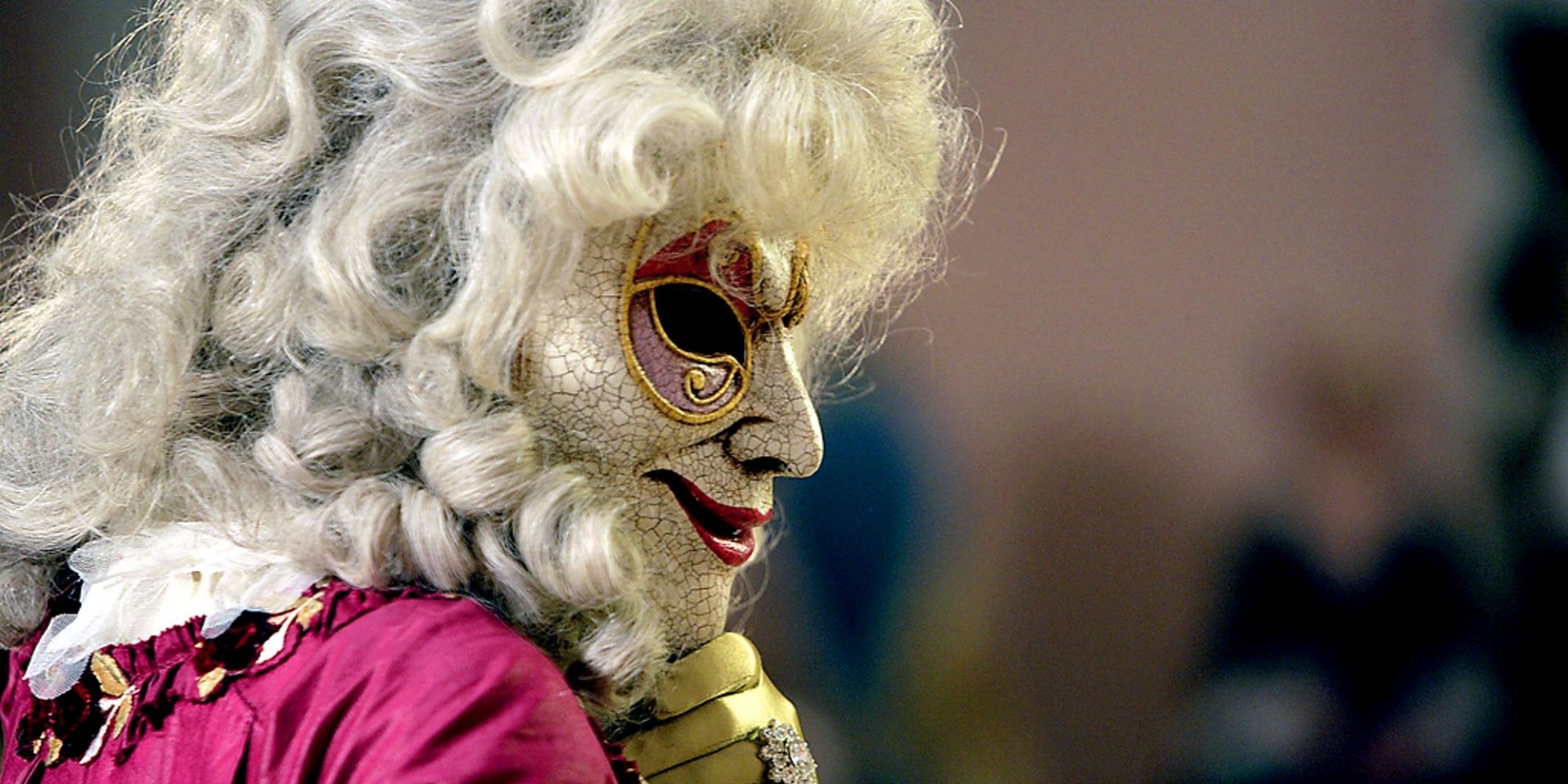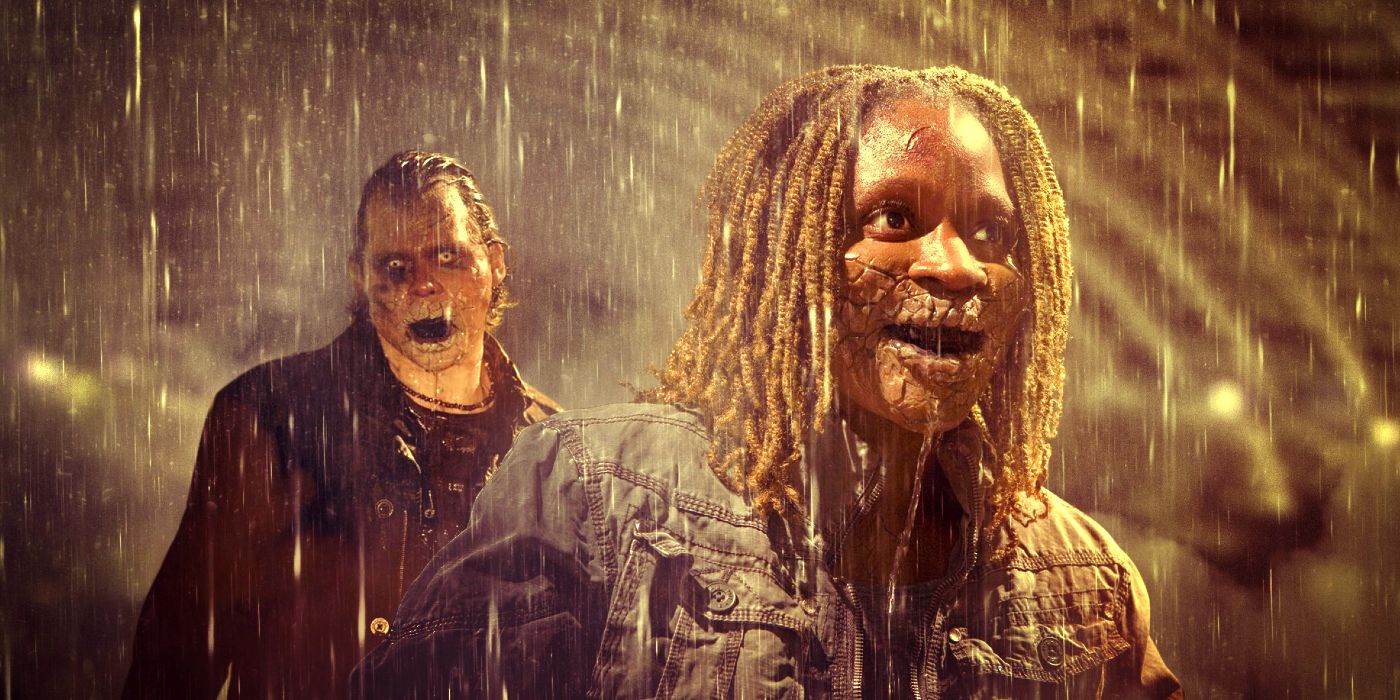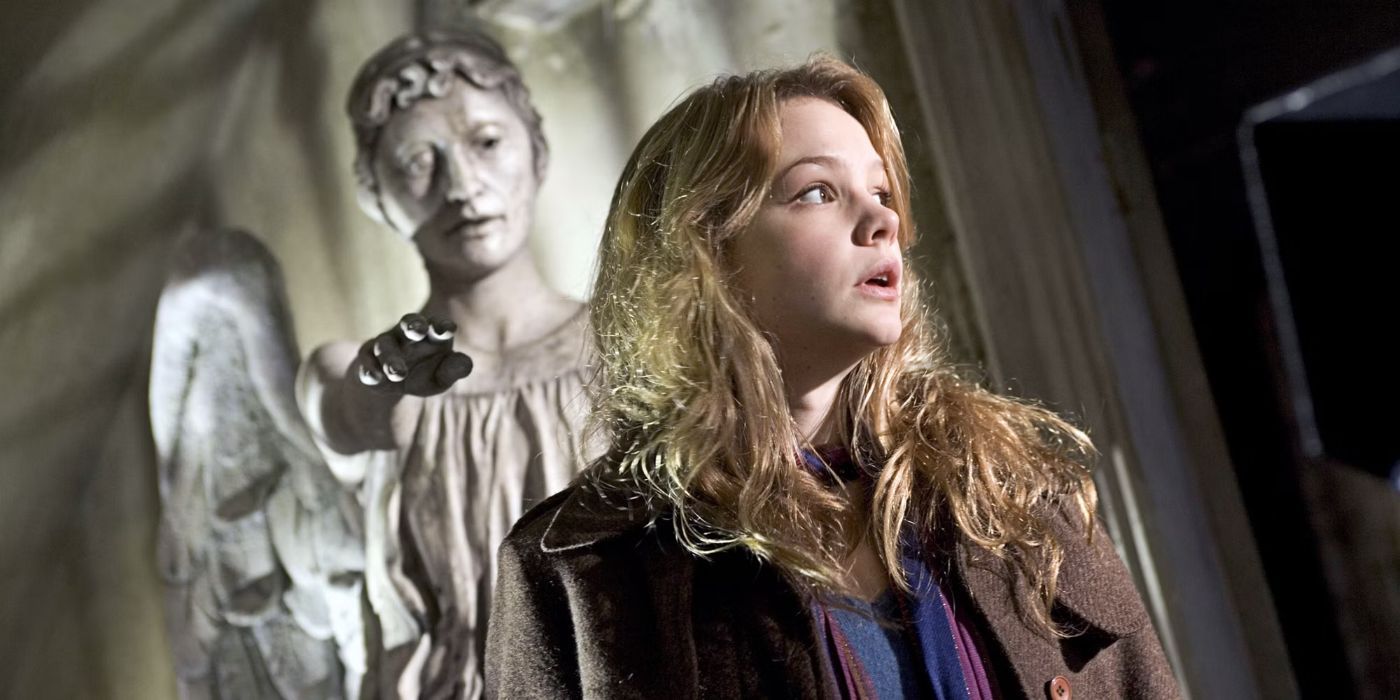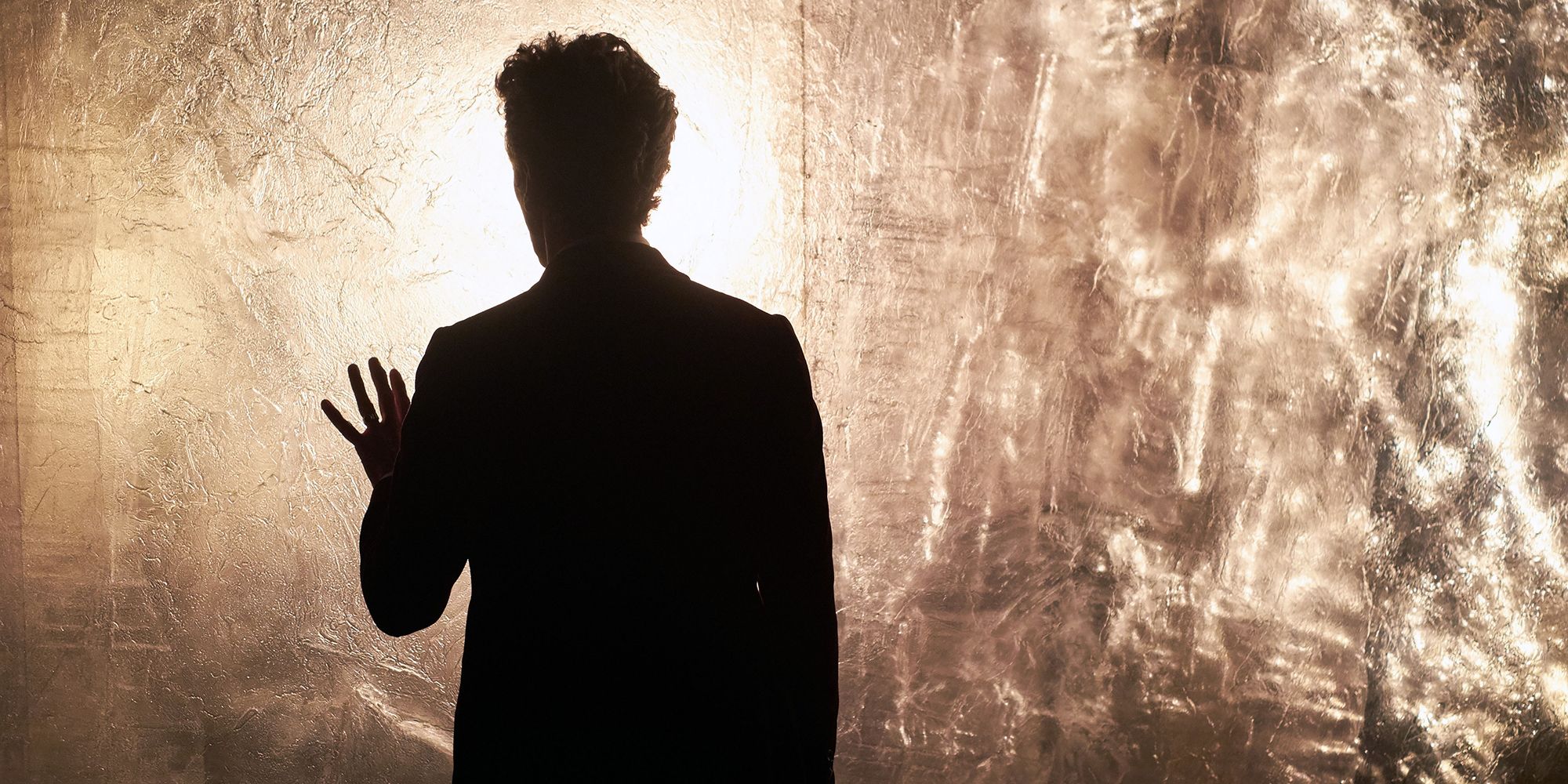The dust has now settled on Doctor Who Season 2, with fans across the world left with a sour taste in their mouths following a chaotic and unsatisfying finale. The new Disney and Doctor Who era has been anything but a smooth ride, with dropping ratings and frustrated fan response leaving the sci-fi series’ future in serious doubt. Even though the most recent season ended over two weeks ago, no decision has yet been announced on what may be yet to come, with tensions rising as time ticks on.
With that in mind, the thoughts of many wander to the show’s past, as millions remember the heady heights of this timey-wimey adventure. From bombastic battles with classic monsters to the chilling horror-adjacent tales the series is so fondly known for, there is something for everyone in the Whoniverse. With that in mind, and with hundreds of episodes to choose from, here’s a ranking of 10 Doctor Who episodes that are bangers from start to finish.
10
“The Well”
Season 15, Episode 3
The newest era of Doctor Who may have been disappointing overall, but hidden among the mediocrity is a timey-wimey gem. A sequel to the beloved 2008 episode “Midnight,” — more on that later — “The Well” sees Belinda (Varada Sethu) and Ncuti Gatwa‘s Fifteenth Doctor unknowingly land on the diamond planet, only to find Rose Ayling-Ellis’ Aliss alone and death scattered around an exploration base.
Breathless from its first moments, this episode is far and away the highlight of Russell T. Davies‘ second era at the helm, and is the best episode of the series since 2017. Its expansion on the lore of the Midnight Entity whilst providing a real and raw platform for Ayling-Ellis to discuss modern society’s pitfalls surrounding the hearing impaired is inspired, with the episode sadly making the lack of quality around it even more glaringly obvious.
9
“The Parting of the Ways”
Season 1, Episode 13
After the first penultimate episode cliffhanger of the modern era saw Christopher Eccleston‘s Doctor stand up to the Daleks, wage a war on his greatest foes, and promise to get Rose (Billie Piper) back, “The Parting of the Ways” began at full speed and never took its foot off the gas. With Satellite Five under siege as the Daleks draw closer, the lives of everyone on the spaceship rests on The Doctor’s shoulders.
Ever since the concept of the Time War was introduced into modern Doctor Who, a nuanced question of morality akin to the “trolley dilemma” is placed in The Doctor’s hands; is he a coward or a killer? After destroying his own race and the Daleks in the Time War, leaving himself alone in the universe (or so he thinks), The Doctor is given a second chance to complete the job and wipe “every last stinking Dalek out of the sky.” Instead, he chooses to find another way, perfectly wrapping up his journey to redemption that Season 1 so dutifully guides.
8
“Utopia”
Season 3, Episode 11
Come Doctor Who‘s third season of the modern era, fans had become used to the formula of the season ending with a two-part finale. So, when the third-to-last episode revealed its true identity as the first in a trilogy finale, viewers across the world were in shock. Thankfully, this came in one of the season’s best episodes, with the Tenth Doctor (David Tennant), Martha (Freema Agyeman), and Captain Jack (John Barrowman) traveling to the end of the universe and meeting the last surviving humans attempting to flee in a ship to the mythical “Utopia.”
In the greatest cliffhanger in all of modern Doctor Who, the wise Professor Yana (Derek Jacobi) turns out to be The Doctor’s oldest foe, The Master. Perfectly directed by show veteran Graeme Harper, this reveal is given the gravitas it deserves, allowing those who remember the character to let their jaws crash to the floor, and those without knowledge of the character to truly understand the stakes at play. Simply this moment alone, and the intelligent way the episode crescendos towards it, is enough for “Utopia” to be labeled a banger.
7
“Vincent and the Doctor”
Season 5, Episode 10
Not every ‘banger’ needs to be fast-paced. Veteran British writer Richard Curtis‘ one and only time writing for the series took place in Season 5, fondly referred to as “The Fairytale Season,” and is perfectly placed. Matt Smith‘s Eleventh Doctor and Amy Pond (Karen Gillan) find themselves traveling back in time to meet the legendary Vincent van Gough (Tony Curran), after being intrigued by a strange monster-esque shadow in one of his paintings.
The best casting of any single-episode character in the show’s history, Curran feels born to play van Gough, with his ability to find the emotional nuance from within this troubled genius’s vibrant soul bursting from Curtis’ perfect page and onto the screen. A neat exploration of depression and its true power to overwhelm, “Vincent and the Doctor” makes the brave call to not give this story a bow-tied happy ending, instead allowing the perils of history to still take their course. As The Doctor says, “The good things don’t always soften the bad things, but vice versa, the bad things don’t always spoil the good things and make them unimportant.”
6
“The Stolen Earth”
Season 4, Episode 12
Before Infinity War, there was “The Stolen Earth.” Russell T. Davies’ first era of Doctor Who saw the series expand larger than ever before, with two major spin-offs that helped the ever-changing cast stay on screens as the show typically evolved. In “The Stolen Earth,” the first half of Doctor Who‘s Season 4 finale, all of that effort paid off in spectacular fashion as an evil plan by the Daleks and Davros (Julian Bleach) brings all the titular Time Lord’s companions, dubbed “the children of time,” together.
For any fan who had dedicated the last four years of their lives to following the many adventures of this evolving TARDIS team both off and on-board the ship, “The Stolen Earth” was the pay-off they had always dreamed of. Managing to somehow take countless characters and make them all feel desperately important to this 45-minute episode, “The Stolen Earth” isn’t Davies’ finest hour as a writer, but is definitely his finest hour as a showrunner.
5
“The Girl in the Fireplace”
Season 2, Episode 4
Writer Steven Moffat had a habit of stealing the limelight during Davies’ first era as showrunner, with the guest writer doing so once again in Season 2, Episode 4, “The Girl in the Fireplace.” On a spaceship in the 51st century, Tennant’s Tenth Doctor finds an unlikely fireplace, one that surprisingly hides a portal to 18th century France in the bedroom of Jeanne Antoinette Poisson aka Madame de Pompadour (Sophia Myles).
The effects of time travel are rarely explored in Davies’ Doctor Who, with the showrunner preferring to explore the space element of the series. Moffat, however, had a clever taste for how time travel could be used to great narrative effect, with “The Girl in the Fireplace” detailing what happens when two lives are experienced at different paces. From the iconic clockwork droids to the tender love story in a bottle at the episode’s heart, this is a true gem of Doctor Who.
4
“The Waters of Mars”
2009 Specials, Episode 3
After Tennant had announced his departure from Doctor Who, it was confirmed that his final year as the titular Time Lord would consist of a series of specials instead of a linear week-to-week season of television. After “The Next Doctor” and “Planet of the Dead” seemed to breeze by without offering The Doctor much to do, it felt as if this year of Doctor Who was going to simply be a victory lap for Tennant’s incarnation.
Then came “The Waters of Mars” to change all that, with this hour-long special taking Tennant’s Doctor and pushing him further than he’s ever been, unlocking the “Time Lord Victorious” in the process. Utterly terrifying and simply breathless, no episode before or since has better explored one of the modern era’s most fascinating sci-fi concepts: a fixed point in time.
3
“Blink”
Season 3, Episode 10
Doctor Who‘s most famous episode. Starring the Hollywood-bound Carey Mulligan, “Blink” nails the Doctor-lite formula that the previous season’s “Love and Monsters” had failed. Trapped in the past, The Doctor (Tennant) attempts to communicate with Mulligan’s Sally Sparrow through the use of DVD Easter Eggs, and a conversation he has already had that she is yet to have despite her being in the future… wibbly wobbly, timey-wimey.
To help the Time Lord, Sally is forced to face one of the universe’s most deadly creatures, the Weeping Angels. Moffat’s greatest invention and the modern era’s best new villains, the Weeping Angels take the fear of the unknown and dial it up to eleven. A truly terrifying slice of horror television, “Blink” also has a tender core that explores love and loss without ever wasting any of its thrilling tension. From start to finish, this is perfect.
2
“Midnight”
Season 4, Episode 10
As Doctor Who Season 4 entered its final stretch, it felt as if things couldn’t get any better. Then, without anyone expecting it, along came “Midnight” to blow everything before it away. Attempting to take some time for himself and explore the diamond planet Midnight, The Doctor (Tennant) joins a small touring vehicle alongside a handful of humans to take in the gorgeous sights. Alas, after being promised the planet is uninhabitable, evil comes knocking from outside the vehicle.
Prior to this episode of Doctor Who, the titular Time Lord had been able to take even the most dangerous of situations by the scruff of its neck, and use his charisma, charm, and intellect to take charge of any group of people and help save the day. So what happens when all of that charisma, charm, and intellect works against him? As the humans become more paranoid about their uncertainty around the creepy invisible entity that seems to have infiltrated their vehicle, they turn on the one man who seems different, placing the Doctor in his most perilous position ever. Taking time to cleverly introduce us to each person on board in its opening third in a gentle yet captivating extended sequence, “Midnight” brilliantly flips our expectations and rewrites everything we thought we knew about the people we just met.
1
“Heaven Sent”
Season 9, Episode 11
To many, “Heaven Sent” is the pinnacle of Doctor Who. After losing his best friend Clara in the previous story, Peter Capaldi‘s Twelfth Doctor is placed inside a labrynthine maze, as he is slowly tracked by a shrouded substitute for Death itself. With seemingly no way out and without his trusted companion, The Doctor has no choice but to dedicate billions of years to solving the puzzle.
Above all else, Doctor Who is at its best when it takes sci-fi concepts and universally understood themes and combines them with genius writing. That, in a nutshell, is “Heaven Sent,” as writer Moffat uses The Doctor’s struggle as a gorgeous, heartachingly relatable metaphor for the unremitting pain of grief. Supported by Murray Gold‘s best score, some of the most beautiful camerawork in the show’s history, and the show’s best leading performance, “Heaven Sent” isn’t just a banger episode of Doctor Who from start to finish, it’s one of the greatest single episodes of television ever made.

